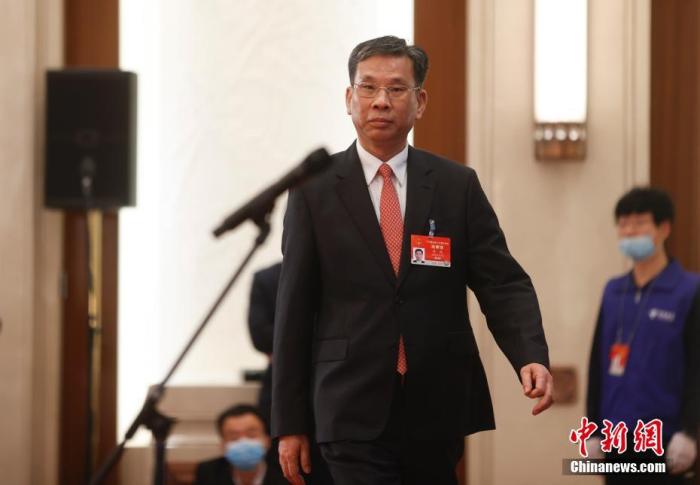(Two Sessions Express) Liu Kun: Fiscal policy will remain basically stable in 2021, no sharp turn
China News Agency, Beijing, March 5 (Reporter Wang Enbo) Liu Kun, the Minister of Finance of China, stated in the first "Ministerial Passage" of the National Two Sessions on the 5th that the fiscal policy in 2021 will remain basically stable and there will be no sharp turn.
Liu Kun pointed out that a proactive fiscal policy should improve quality and efficiency, be more sustainable, be a whole, embody the people-centered thinking, and embody the requirements of adhering to the general tone of the work of seeking progress while maintaining stability.
Fiscal revenue is taken from the people and used for the people. Fiscal expenditures must be improved in quality and efficiency, and used appropriately, in response to the needs of the people, so that the people will benefit more and achieve better results.
To achieve this, it must be implemented in four aspects: levy in accordance with laws and regulations, improving expenditure efficiency, preventing extravagance and waste, and strengthening performance management.
On March 5th, the fourth meeting of the 13th National People's Congress held the first "Ministerial Channel" interview event.
The picture shows Liu Kun, Minister of Finance of China, being interviewed via online video.
Photo by China News Agency reporter Du Yang
Liu Kun said that a proactive fiscal policy emphasizes more sustainability and covers a wide range of content. This is reflected in three characteristics in this year's budget arrangement:
First, the fiscal policy remains basically stable and does not make a sharp turn.
This year's deficit rate and local government special bond limit have been lower than last year, but compared with 2019, the total deficit is 3.57 trillion yuan (RMB, the same below), an increase of 0.81 trillion yuan; the local government special bond limit has increased by 3.65 Trillion yuan, an increase of 1.5 trillion yuan.
The central government's fiscal expenditure has experienced negative growth for two consecutive years, and the saved funds have been used to increase transfer payments to local governments.
This year’s central government’s transfer payments to local governments have increased slightly from last year, with a scale of over 8.3 trillion yuan.
The second is to do a good job of linking up with fiscal policies in the coming years and leave room for it.
In recent years, China has continued to implement tax cuts and fee reductions, and the ratio of tax revenue to GDP has continued to decline, and it currently stands at 15.2%.
China will continue to improve government debt management, maintain the macro-leverage ratio of government departments basically stable, not only maintain the necessary expenditure for economic recovery, but also reserve policy space for future response to risks and challenges.
The third is to resolutely resolve hidden fiscal risks, perseverely resolve hidden debt risks of local governments, and resolutely prevent grassroots "three guarantees" expenditure risks, and ensure the steady and sustainable operation of the fiscal economy.
(Finish)

